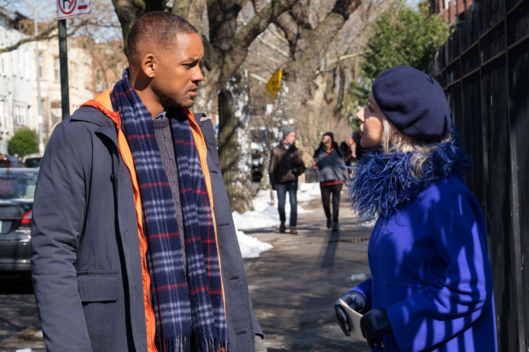Collateral Beauty Is a Cold and Crass Christmas Carol Remake That’s Exactly As Bad As You’ve Heard

When the trailer for Collateral Beauty first hit the internet, the first question asked in unison across social media was “Is this movie real?” The film, which stars Will Smith and a fancy assortment of familiar Oscars season faces, appeared to be about a grieving father who is visited by the personifications of Love, Time, and Death (Keira Knightley, Jacob Latimore and Helen Mirren, respectively), all three of whom help him come to terms with his loss and learn to embrace life again. This would be a terrible idea for a movie, a high-school-level stab at magical realism too thin and thudding to sustain for the duration of a feature film.
You may be relieved to hear, then, that that is not actually what Collateral Beauty is about. Collateral Beauty is about an ad man named Howard (Smith) whose crippling grief after the death of his 6-year-old daughter has made him unable to work, thus becoming a financial inconvenience for his partners at the agency. (The Big Account is, as always, at risk.) Left with no other recourse, they hire three actors at $20,000 a pop to play abstract concepts and harass Howard into either getting over his dead kid, or having a mental breakdown so comprehensive that he can be legally declared unfit to run the agency. (They go back and forth over which is the preferred outcome.) It is truly a Christmas Carol for our time: In place of Christmases Past, Present, and Future, they dispatch Love, Time, and Death, the “three abstractions” Howard once praised as the foundational concepts that get people to buy things. His colleagues refer to the “three abstractions” throughout the film with the urgent solemnity of characters in a Dan Brown novel, mystical totems of commerce that may now hold the key to their friend’s rapidly disintegrating…
Comments